Greener Days Ahead?

By integrating ESG principles into their operations, government and businesses can contribute to a more sustainable future. During the recently organised Global ESG Conclave 2025, experts from various sectors and fields emphasised the importance of ESG in achieving long-term sustainable value, offered guidance on embedding ESG principles into corporate strategies, navigating regulatory landscapes, and leveraging innovation for measurable outcomes. Corporate Citizen brings you excerpts from selected expert talks
Building Atmanirbhar Bharat
— RAMDAS ATHAWALE,
Minister
of State for Social Justice and Empowerment,
Government of India

We are moving towards the vision of Viksit Bharat@2047—a developed India by the time we celebrate 100 years of independence. To achieve this goal, it is crucial that every person, every community, and every sector optimally utilise their skills. To achieve this pioneering objective, the government has proposed various initiatives—the key proposals include establishing 500 Cooperative Startups, 500 Campus Cooperatives and a Cooperative Commodities Exchange.
With 500 Cooperative Startups, we aim to empower the rural India. Through this programme, the government will identify and promote promising startups in districts, which despite having skilled youth, are disconnected from mainstream development. Through the Cooperative model, we will bring together the skills, resources, ideas to address regional challenges and promote financial growth. This programme is not just about business—it is about building Atmanirbhar Bharat, ensuring development reaches every citizen, even in the most remote areas.
Through the 500 Campus Cooperatives, our objective is to nurture youth entrepreneurship and make optimum utilisation of the energy, creativity and innovative ideas of youth. These cooperative platforms will allow young entrepreneurs to collaborate, experiment, and launch new ventures. It will focus on technological and digital service, sustainable products and green energy.
To ensure fair price allocation, effective business and equal benefits for farmers, we are launching Cooperative Commodities Exchange. This platform will provide farmers, small producers and cooperative organisations, a transparent market to trade their produce fairly. This initiative aligns with our broader vision of enhancing rural incomes and making India a global leader in sustainable energy.
Conservation is not a choice, but an imperative
— DILEEP SANGHANI,
Chairman, World Cooperation Economic Forum;
President, National Cooperative Union of India (NCUI) and Chairman, Indian Farmers
Fertiliser Cooperative Ltd. (IFFCO)

The escalating social problems confronting us is not confined to India, but worldwide. Prime Minister Narendra Modi authored a book on climate change during his tenure as the CM of Gujarat, offering us an insight into the upcoming critical condition of the Earth, and issued a global warning. As a matter of urgency, we must acknowledge the environmental imbalance, implementing effective protection and preservation techniques.
The gruesome impact caused by terrorism and the hazardous weapons used during the wars, disturb the natural balance, which in turn impacts agriculture—our most vital resource—on a larger scale, endangering humans. Every life depends on food obtained from this Earth. To shield ourselves from natural calamities, we need to protect our ecological resources with unwavering commitment. As responsible citizens, along with the organisational heads, politicians and business leaders, we must collectively march towards the improvement of our environment.
Organisations like the World Economic Forum (WEF), provide an opportunity to align our nation’s economy with global standards. Our vision is to cultivate an economy that is both resilient and environmentally friendly. Conservation is not a choice, but an imperative.
Recently, India hosted global cooperative leaders from the United Nations (UN) at Bharat Mandapam, where representatives from 107 nations assembled. The programme addressed the concerns ranging from environmental protection to agriculture reforms and social issues. The initiative ‘Sahkar se Samriddhi’ (Prosperity through Cooperation) is more than a slogan—it is an amalgamation of all the schemes and initiatives by the government, focused on environment sustainability, agriculture and employment. India’s youth will potentially stand at the forefront for environmental preservation, serving as catalysts for sustainable development—we can ensure a safe and thriving future for India and the globe.
Farmers applauded but not empowered
— GUN PRAKASH,
Member, PM High Power Committee on
MSP and Agri Reforms, GoI
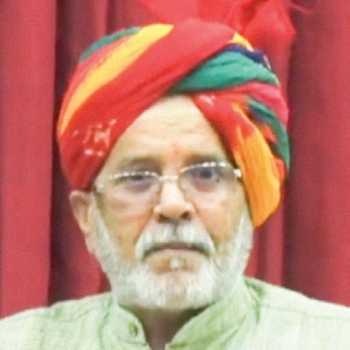
In India, everyone takes pride in acknowledging the efforts of the farmers in the fields, but no one talks about providing them fair market or the rights they deserve. Farmers are not free to sell their produce as they want, as the market does not allow them.
While the concerned authorities in Mandi or factory owners increase the rates of the products as they want, the farmers do not have the right to set price of their produce.
We never get fair price in the market, and this is one of the major reasons why farmers are not able to thrive. When our Prime Minister announced the Farmers’ Policy, it seemed like, for the first time, farmers would be able to work freely. But, the middlemen protested and once again, we were left in misery.
ESG is beyond three words
— SAGAR DHARIA,
Member Board of Trustees, Vanarai Trust
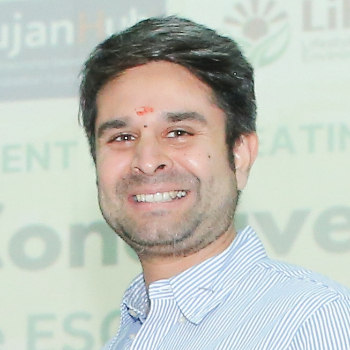
Our country receives 1196 mm of average rainfall a year, from which we are able to conserve less than 6%. More than 94% of this water is washed away, and it carries the top layer of fertile soil along with it. This process of soil erosion is called desertification. Everyone knows that Rajasthan is a desert state, but it is scary to know that Maharashtra is the second most desertified state in the entire country. More than 33% of Indian landmass is going through this process of desertification, resulting in the influx that is moving towards the urban areas. The pressure on the cities is increasing and we are all aware of the current conditions of the large cities of our country. However, due to this influx the fields get barren on a larger scale as rapid urbanisation initiates deruralisation.
‘Vanarai’ was started by Padma Vibhushan Dr. Mohan Dharia, in the early 80’s as he foresaw the problems like climate change and the other related issues. Having countered these challenges for four decades, Vanarai is functioning as a solution by creating a framework to help implement the concept of ESG goals for positive outcomes.
Resources like soil and water received from the environment should be conserved in the rural areas and geographies. India, being a country full of sunshine opportunities and ample rainfall, will grow rapidly when we are being able to harness the power of the three elements — Environment Social and Governance (ESG). Along with looking forward to an amazing career, for thorough development we must keep in mind the 70% of masses that reside in the rural areas. ESG is beyond three words—it’s a methodology and a direction, which is applicable to corporations, organisations, NGOs and even individuals. When we understand the depth of methodology, we will be able to successfully derive solutions to make this country reach the ESG goals.
Sustainability in food and water is crucial
— R.G. AGARWAL,
Founder Chairman,Dhanuka Agritech Ltd.
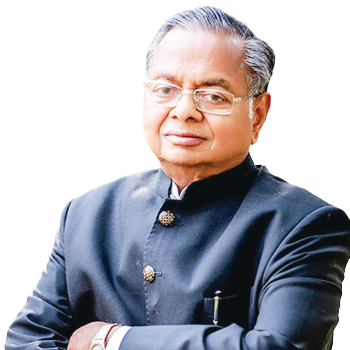
Farmers produce food grains to feed its nation with painstaking efforts. The compost manure use is essential, but it is also crucial to produce fertilisers and increase crop production. While 0.2% nitrogen concentration in cow dung manure might seem low, it's still a valuable source of nutrients for plant growth. Our bodies too require essential nutrients like iron, nitrogen, zinc, potassium and manganese, which are ideally obtained from nutrient rich food. With the declining quality of soil and produce, soil nourishment has to be harnessed. Our first step should be towards a balance usage of fertilisers. While promoting compost, it has now become mandatory to revive the green and bio-fertilisers that constitute living microbes, which help deliver the nutrients effectively to the crops. Sustainability of food and water is indispensable, as we cannot survive without them.
Coming from Rajasthan, where water security is a daily challenge due to salty water, we implemented measures like rainwater harvesting and understanding the value of this precious resource. In North India, groundwater levels are experiencing alarming declines in many areas, and many of the places have wells that are breeding deadly elements, which potentially cause cancer.
Delhi’s hazardous air quality is caused due to dependence on fossil fuels. Under the Paris Convention, PM Narendra Modi promised a commitment of transitioning to solar panels. We not only completed the promise but excelled at it. As responsible citizens, if we all pledge to plant a tree, then within a year of about 140 crore trees will beautify the earth. We too, at Dhanuka have initiated the tree plantation drive.
Dhanuka is also advancing in AI and other contemporary technologies to ease the work of farmers and give them the correct value for their produce. Farmers deserve their freedom of production along with the right agri-inputs, good quality seeds, fertilisers and pesticides, and increasing their standard of living. Economic development and environmental protection go hand in hand. By active implementation of SDGs, we are generating long-lasting solutions for a secure future.
Nepal possess a model for sustainable development
— ANJANA ADHIKARI,
Women Youth Leader and Executive
Member, National Youth Council, Nepal

Nepal’s rich cultural tapestry has long embraced the spirit of cooperation, even before they were established. Deeply rooted in tradition, Nepalese communities continue to thrive on systems like Dhikuti, for savings and credit, Parma system a reciprocal exchange of labour and Dharma Bakari for grain storage. These traditional practices embody the spirit of mutual collaboration that still resonate in the rural Nepal.
Over time, the deep-seated cooperative spirit evolved into a structured movement, shaping the economy and society. The modern cooperative journey began in 1960, laying the foundation for institutional growth. Progressively, Nepal Federation of Savings and Credit Cooperative Unions Ltd. (NEFSCUN) came into practice in 1988.
Today, the cooperative sector is officially recognised as one of the three pillars of Nepal’s economy, alongside public and private sectors. With over 34,000 cooperatives nationwide and memberships extending to 7.2 billion people, this sector plays a pivotal role in providing access to financial services for the rural people, particularly for the women and marginalised communities. Ultimately, it stimulates financial inclusion, agricultural development and rural empowerment by providing the farmers with seeds, technologies and collective marketing opportunities for enhancing their productivity and incomes.
The cooperatives are keen to empower women, by instilling self-reliance in them for an uplifted social and financial standard. They promote sustainable practices like organic farming and renewal of energy adoption to support Nepalese climate goals. Incessantly, the cooperatives in Nepal possess a model for sustainable development in South Asia.
When it comes to achieving and implementing ESG goals, it all starts with cultivating a healthy livelihood. A healthy mind driven by discipline and passion can proficiently fulfil ESG goals. By continuing to campaign the value of cooperation, reliance and inclusivity that define our walk together, we collectively can create a brighter future for the community and the world.
Big probabilities of entrepreneurship in agriculture
— PADMA SHRI BHARAT BHUSHAN TYAGI,
Member, PM High Power Committee on MSP and Agri Reforms,
GoI
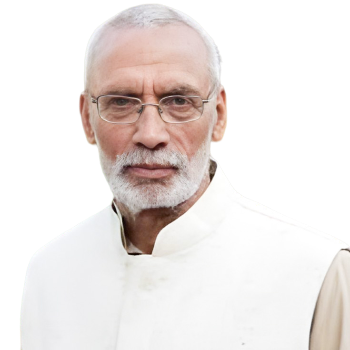
Between 1976 and 1985, I did analysis of the agricultural economic models, particularly those related to chemical farming. The findings were shocking. I realised that this approach to agriculture could prove disastrous for India. While many may believe that modern or advanced farming has achieved a lot in India, I would like to clarify that it has also given rise to many new challenges. We have put everything at risk—our villages, our farmers, and our natural ecosystems. Today, there are hardly any parents who would want their children to take up farming.
The first step towards change is preparing the groundwork for transformation, with an objective that we would not go with the circumstances but align ourselves with the system—the system of nature. You cannot find sustainability in information, data, machine or government—sustainability lies in the existence of the nature.
After working in the agriculture sector for decades, I have observed that we are misled about organic farming and input waste management. It was only after that I have realised the existence of the nature. Today, I am a farmer who has made thousands leave their job and adopt agriculture. Without any external help or grants, I have trained over four lakh people. Every month, thousands of people visit my home to learn.
Farming is not just a job of a farmer, but it is a business that supports society and the family. When in 1987, I analysed the agriculture economy, I was disappointed to find that market had controlled entire value chain — pricing, processing and rights to the sell the product. Farmers were degraded to being just sellers. They rely on God and the Government to grow crops. But, today is the era of technology and science. There are big probabilities of entrepreneurship in agriculture. Agriculture has immense potential in the circular economy, we just need a small shift in perspective.
Carrying the hopes of a million farmers
— BHUPINDER SINGH MANN,
Co-founder, Bhartiya Kisan Union
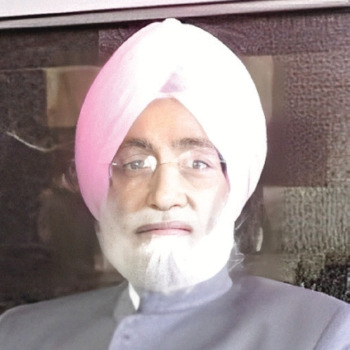
I was summoned in the Parliament by the Prime Minister, and was required to represent the voice of Indian farmers at the United Nations Organisation (UNO). From cutting woods to farming, I carried the hopes of a million farmers on the global stage, the journey showcasing perseverance and purpose.
Under the leadership of Late Sharad Joshi, who founded the Shetkari Sanghatana, I had come to Maharashtra to address various difficulties faced by the farmers. I developed my understanding of the Marathi language as well as the sentiments of the farmers.
I recall a powerful incident from the aftermath of the atomic bombings at Hiroshima and Nagasaki, which significantly affected the lives of the Japanese farmers. A farmer who was determined to rebuild, carefully stored his rice grains and separated them manually by threshing, winnowing and husking—determining resilience and innovation. His son, eager to provide a momentum to this process, collected automobile parts from various vehicles and made his own, naming it, ‘Maruti Suzuki’. The meaning of the word ‘Suzuki’ in Japanese is ‘all purpose vehicle’. The chairman of this brand once described himself as a farmer, acknowledging the capital he earned in his initial days due to farming. Such success stories portraying vision and determination are the driving forces of a successful entrepreneurship, which highlight the necessity of a conducive environment.
Integrating technology and clearing the misconceptions towards the same, will boost farming. For sustaining in the global competition, India needs to increase its production levels above other countries, which is more than 3-4 times per acre or per unit area. Our scientists are working towards inventions like biotechnology and genetic engineering. Turning a blind eye towards negative influencers related to farming, our initial action should inculcate educational awareness. Inspections with in-depth analysis, can be fostered by rejecting surface level studies.
A better future necessitates nurturance of farmers, integrating productive technologies and fostering education—empowering our rural areas from all these three spheres.
Advancing solution for ESG-led rural development
— MEENESH SHAH,
Chairman, National Dairy Development Board
(NDDB)
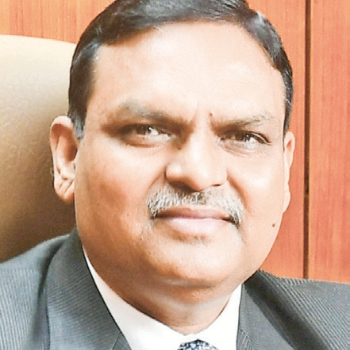
At the time when aligning ESG principles with the sustainable development is critical, India’s dairy sector contributes about 30% to the agriculture gross value added (GVA) and supports over eight crore farmers, many of whom are women. The Zakariyapura model, also known as the “cluster biogas plant model”, exemplifies this alignment by installing domestic biogas plants in the backyards of the women farmers. This initiative provides clean cooking gas from the biogas dung and digested water, reducing emissions.
Our notable innovation is the formation of ‘Khad Mandali’,where these women beneficiaries collect these bio-slurries from various households and convert it into organic manure. This circular approach supports livelihoods, promotes sustainable farming, and empowers rural women, making the model an advancing solution for ESG-led rural development.
Inspiring youth of visionary India
— JITENDRA SHARMA,
Chairman, Confederation of NGOs of
Rural India (CNRI)
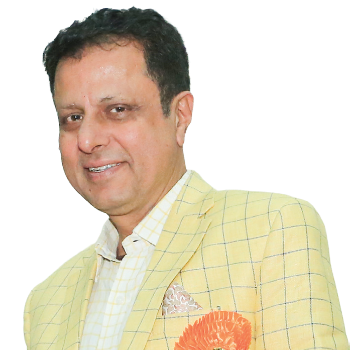
In the history of 7-8 years of the Modi Government, renewable energy and rural development have reached zenith.
The young population are turning to work towards sustainable development, inspired to bring about a change.
The success stories of the young volunteers are noteworthy, exemplifying the importance of ‘Job givers are the need of the hour than the job seekers’.
The knowledge we attain from studying with utter concentration, proves to be useful in the long run.
Our attentiveness throughout the process of learning, substantiates the experience we gain consistently.
Attuning agricultural growth and sustainability
— P.S. BIRTHAL,
Director, ICARNational Institute of Agricultural Economics
and Policy Research (ICAR-NIAP)
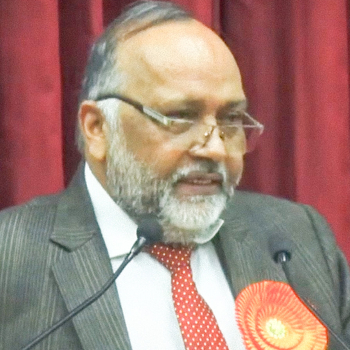
Our overall economical and agricultural growth are interconnected. Economic growth mirrors agriculture growth, which means agriculture has the power to drive the entire economy. However, in the last three decades, our agriculture growth has been largely driven by the growth in allied sectors such as animal husbandry, dairy and fisheries, rather than the crop sector. Further, growth in these sectors is resilient to climatic-related stresses.
In the context of our Prime Minister’s vision to make India a developed nation by 2047, agriculture has an important role to play. With multiple researches, we came to a point that our consumption patterns are changing—dependence on cereals has declined while share of animal-sourced food, fruits and vegetables has grown to almost 50% of total food expenditure. High-value food commodities such as milk, meat and eggs are witnessing increasing demand with increase in income.
By the year 2047, we have made some projections that indicates, the share of agriculture in GDP and workforce will decline to 9 percent and 29.1 percent respectively. However, the sector will continue to face three major challenges - land, water and climate change. To address these challenges, we can consider several solutions. We can use micro-irrigation and solar power in agriculture, switching to Pradhan Mantri Kisan Urja Suraksha evam Utthaan Mahabhiyan (PM-KUSUM) Scheme is also a good option. Further, enhancing ecosystem services, resorting soil health with limiting use of fertilisers, linking soil health cards with fertiliser subsidies, providing crop insurance, encouraging crop diversification, improving market access for the farmers and implementing technology-led growth can also contribute in tackling the challenges.
Policymakers must recognise the interconnected nature of the challenges and create a holistic and balanced approach, acknowledging that addressing one aspect in isolation may lead to unintended consequences for others.
Self-regulation is the key for implementing ESG goals
— PRAVEEN TRIPATHI,
IIM-A Alumnus and Chairman, Magic9 Media and Analytics Pvt.
Ltd.
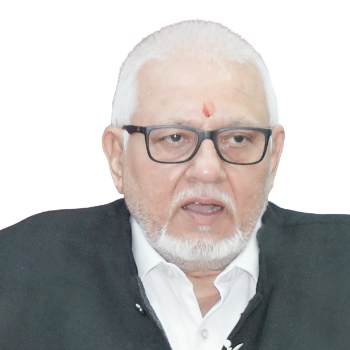
Companies which stand in the top 1000 are obliged to implement the ESG goals as proclaimed by the government. However, I firmly believe that companies with over 100 crore turnovers are equally bound by specific regulatory compliances. This highlights the urgent need for clarity regarding the role of private sectors, whether them funding the NGOs working towards sustainability alone is sufficient or there is a need for utilising the expertise and skills to drive real impact.
The environmental impact and climate change on farming should be addressed, since total elimination is unfeasible. There is a need to mitigate these adversities, which are harmful for interests of the farmers and underprivileged, and provide clear objective measures to derive action plans accordingly.
The industries need to identify the achievable goals by inculcating certain self-regulatory techniques. Successful work can be released, by setting a clear metric about the ESG goals, with inspiration to instigate the movement with prescribed government regulations and company contributions. When the government and private sector cooperate for the unified mission, it will foster the achievement of the ESG goals successfully. Moving beyond calling ESG as a mere slogan, changes can be implemented by actively working towards its integration.
Cooperatives accelerate digital transformation
— H.K. MISHRA,
Member, National Cooperative Policy
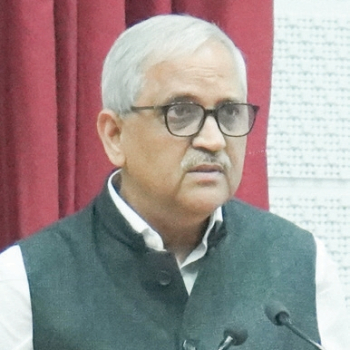
India needs a concrete platform for cooperatives as they play a major role in accelerating digital transformation. However, it is essential to be aware whether this integration meets the ends with sustainable practices.
Organisations rooted in resource-based models are now driven to adopt cost-optimising, profit-maximising technologies. However, digitalisation when left unregulated, risks environmental degradation. As highlighted in the Circularity Gap Report (CGR), this imbalance can deepen global divides. India’s pro-digital transformation approach must address tele-density gaps, bridge the circularity gap, boost its Telecom Infrastructure Index (TII), and set a benchmark in the global stance. Generative technologies like AI and machine learning tools can help empower citizens.
Cooperatives are inherently aligned with social and governance principles, which are ideal platforms for inclusive innovation. The Ministry of Cooperation’s National Cooperative Database (NCD) is a strategic move forward. Yet, challenges persist - digital ecosystems need strengthening, members require digital sensitisation, and technology use must be responsible.
True transformation occurs when balance and purpose are in alignment. When we pay attention to regenerating our roots, measuring real impact through Return on Investment (ROI) and improved local outcomes, we will naturally be capable of defining our success.
The next century belongs to India
— RAJVIR SHARMA,
Chairman, Indian Institute of Public Administration
(IIPA)
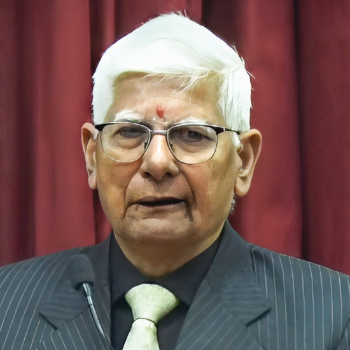
India is going to lead the world in the upcoming century because of its roots, which are deeply embedded values and culture. The inclination towards our ethnic origin facilitates our compliance with ESG goals and prove to be the building factors for trust development within cooperatives. Moving beyond the word policy, true sustainability lies in practise instead.
Cooperatives are now the driving forces across sectors like education, sanitation and agriculture. Their strength lies in unity, trust and shared responsibility. Establishing cooperatives where they are lacking and equal efforts by women and men, will drive transformation from the grassroot levels.
In the agricultural sector, cooperative societies are executing their prodigious efforts hence, the farmers are mandated to be reform oriented, in turn increasing our national economy. There arises a requirement to discard our traditional thinking related to farmers and implement new perspective for their development.
India’s originality of thought when combined with collective efforts towards environment conservation, increases our work productivity and provides a global recognition in development.
Youth in cooperation
— MALLIKA KUMAR,
Associate Professor, Shri Ram College of Commerce, and Head,
Global Research Cell, World
Cooperation Economic Forum

From climate change to social inequities, education holds the power that not only transform lives but also serves as a corner stone for global and inclusive future. I would urge everyone for a cooperative education framework that integrates cooperatives and ESG principles into education curriculum, policies and practices.
Cooperative education framework would focus on inclusion by making education accessible to all and by including cooperatives into the curriculum and innovation, by utilising technology in education.
United Nations has declared the year 2025 as international year of cooperatives, which is a great opportunity.
Let us be vocal for local to the global, as cooperatives is a business model, by the people and of the people. It is youth in cooperation and cooperation in education—that is the need of the hour.
Call for agricultural reform
— GUNVANT PATIL,
Member, PM High Power Committee on MSP and Agri Reforms, GoI
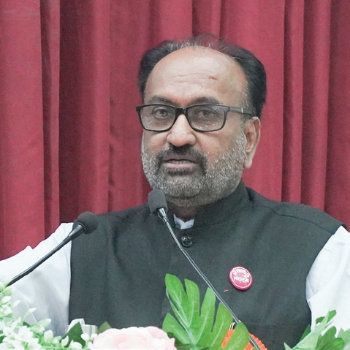
I would like to extend my views on Essential Commodities Act (ECA), 1955.
In our constitution, 284 rules mentioned in the schedule nine, are against farmers.
If an engineer like me would want visit the court and challenge these rules, I cannot do it because Article 31B of the constitution supports it. Unless these 284 rules are against us, we cannot grow, no matter how much effort we put in.
And so, people are leaving farming—around 4% people in America are farming, 6% in Europe and Japan, and here we have 50% people in farming.
We must have to bring new perspective in farming, and also need to reform the cooperative sector.
Cooperatives and SDGs
— C.S.C SEKHAR,
Professor, Institute of Economic Growth and Member, PM High
Power Committee on MSP and Agri Reforms, GoI
These are some of the SDGs which can be addressed through a cooperative kind of framework:
- Ending poverty in all its forms everywhere— cooperatives can address or help this SDG because by basic principle and ethos they are guided by joint equitable and democratic ownership.
- Ending hunger, achieving food security and improvement—here, cooperatives such as producer cooperatives and consumer cooperatives can help in increasing production, getting right prices for the producers, and enable the poor to purchase nutritious food at lower prices under credit, cutting out the middlemen.
- Achieving gender equality and empowering women—by their very fundamental principles cooperatives are inclusive, and have equal representation of all sections. Through improved access to resources and ownership, cooperatives can actually play a better role in ensuring gender equality and empower women employees.
- Ensuring availability and sustainable management of water and sanitation for all—this goal can be better addressed by community-based cooperatives that can provide access to the water resources in regions that are not served by public agencies and not protected by private agencies.
- Ensuring access to affordable, renewable, sustainable and modern energy—here community cooperatives can provide access to energy regions where both the state and markets are available.
- Sustainable economic growth and inclusive employment—cooperatives can play a pivotal role as they contribute nearly 7% of the global GDP and global employment.
- Reducing inequality and peaceful and inclusive society— cooperatives can help in addressing these two goals in a major way.
- Climate related goals—they basically talk about sustainable consumption of water — life underwater, which is about seas, and life on land which is about forestry. Cooperatives provide the appropriate organisation framework for joint management and efficient use of natural resources and also mitigating some of the climate-related hazards.
- Strengthening the means of implementation and revitalising global partnerships—this is about the governance part—here the cooperatives very often are thought of as micro level institutions. But, they can also federate and grow into a much larger body.
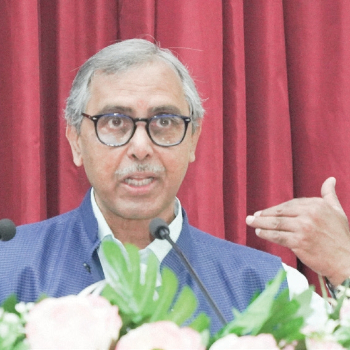
There are advantages of cooperatives, but there are some challenges also. The challenge of conducive policy environment, viable economies of size, having the will to come together, innovation and flexibility—cooperatives must overcome them to achieve growth.
A path to Viksit Bharat
— YUVRAJ MEHTA,
Founder and CEO, StrateRise Consulting

As India is moving towards achieving the vision of ‘Viksit Bharat’ and to be on that path there are three things that need to be delicately balanced: Economic growth, social equality and environment protection. Until and unless we focus on each one of them, the path towards the Viksit Bharat goal, is not going to be that easy. And, to do that it needs a holistic approach and participation on all segments from large companies to research institutes to people, who have the knowledge centre. Here, one of the biggest sector is MSME, the lifeblood of Indian economy. We are talking about approximately 65 million MSME enterprises that are thriving and making India move to the next level. India to achieve net zero goal, MSME focus and MSME sustainability plays equally important role.
But, what if the MSME does not grow, then a lot of hurdles will appear on the path towards building sustainable cities and achieving the next level of growth for the country. That is precisely why the idea of solving this challenge becomes critical through ensuring experts come on board to support MSMEs, and cost should be affordable. Viksit Bharat will only be possible when sustainably imbibed. And if, sustainability has to be imbibed, then Environmental Impact Assessment (EIA) reporting is paramount and most important thing that needs to be done.
People vs Planet
— PRAMOD KUMAR CHAUDHARY,
Member, PM High Power Committee on MSP and Agri Reforms,
GoI
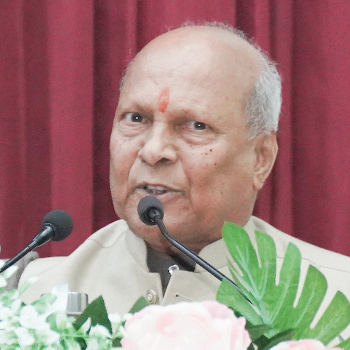
When we talk about ESG, we also need to focus on the issue of population control. As per a recent report, a total of 80 per cent poor people of the world will be found in Africa, due to the lack of population control in the region.
Our Earth has a limit of how many people can sustainably live per square kilometer. If we can work within that limit, the elements that cause pollution will not impact the Earth as much.
Thus, the world needs to develop a plan regarding population control, required for smooth and fast paced development. Every year, thousands of engineers and professionals are trained—but without proper investment and planning, where will they go? If the growth of population is managed well with proper population, then ESG and sustainability goals can be achieved fairly.
Essence of developmental journalism
— DURGENDRA SINGH CHAUHAN,
Editor-in-Chief, K News
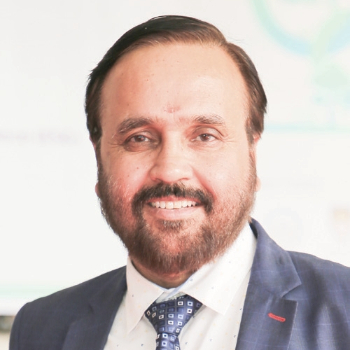
When I entered journalism around 1989, the essence of developmental journalism was very different. It focused on meaningful, people-centric issues — for example, highlighting the absence of a bridge in a village that prevented children from reaching school. Such stories had a social purpose. When authorities acted on these reports and built the bridge, the satisfaction we felt was immense—far greater than the kind we see today with the construction of flyovers or expressways.
Another concern is the deteriorating trust between politicians and journalists. Earlier, politicians would confide in journalists and engage in open dialogue. Today, that trust has eroded—both sides often blame and criticise each other. This breakdown in trust isn't limited to politics or journalism; it’s spreading across society as a whole. And that's why, we find ourselves in such a volatile state of affairs.